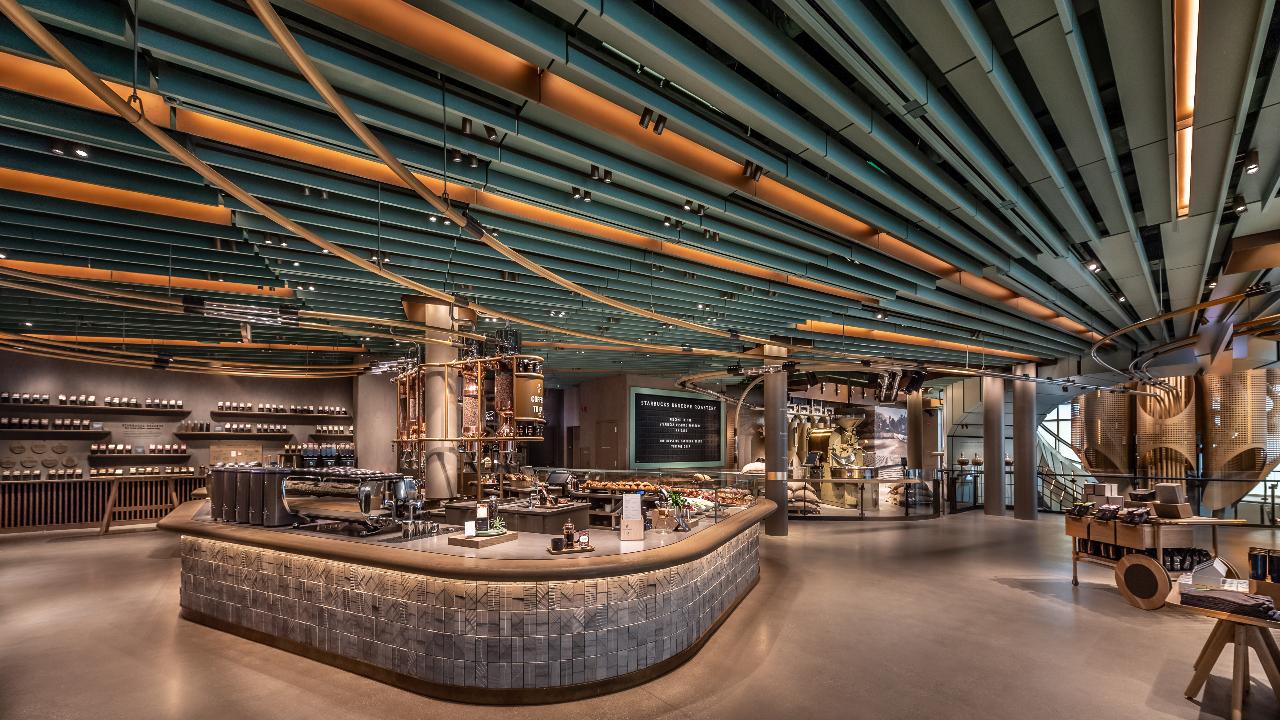Starbucks aims for local economic boost with 'community store' plan
Coffee company exec: 'our belief that the pursuit of profit and purpose are not in conflict.'
Starbucks is launching a major expansion of its community store initiative, adding dozens of new locations in economically distressed areas after an initial pilot program proved financially viable, the company announced on Thursday.
The coffeehouse chain said it plans to operate 100 stores within its community store program by 2025, up from 15 stores as of this spring. Launched in 2015 as a test program, the initiative aimed to boost economic development in low-income neighborhoods, such as Ferguson, Missouri and Trenton, New Jersey, by hiring local residents, partnering with local leaders and providing a meeting ground for community events.
To smooth the expansion process, Starbucks is partnering with the United Way to develop community programs specific to each neighborhood. While the initiative has a charitable core, Starbucks said the community stores are a benefit to its business and stressed that community stores already in operation are profitable.
STARBUCKS SERVES UP NEW EMPLOYEE BENEFITS TO LURE WORKERS IN HOT US JOB MARKET
“The intent for the initiative and the community store principle is that these are Starbucks stores. There’s no charity here,” John Kelly, executive vice president of public affairs at Starbucks, told FOX Business. “If a store is not profitable, we make changes to find a way to make it be profitable. That’s true with any Starbucks store, but it’s an important value of our value and our belief that the pursuit of profit and purpose are not in conflict.”
The community store program has created more than 300 local jobs to date and more than $59 million in indirect economic impact, according to the company. The expansion is expected to bring anywhere from about 1,700 to 2,000 local hires into Starbucks employment.
The 85 planned stores include a mix of new and refurbished store locations, with openings planned for Prince George’s County in Maryland and Los Angeles, California, among other cities. The lengthy pilot program helped Starbucks identify ways to build on the concept without sacrificing profitability.
“The one thing that we’re committed to is successful enterprises. It doesn’t do a community any good to show up as charity and then that charity goes away,” Kelly said. “We want to be able to demonstrate that this is a viable business and that the community is vibrant and welcoming and that we’re a part of that community.”
| Ticker | Security | Last | Change | Change % |
|---|---|---|---|---|
| SBUX | STARBUCKS CORP. | 99.45 | +3.38 | +3.52% |
Programs developed in tandem with the local United Way chapters will include functional workshops, such as life skills training and youth mentorship programs. Starbucks plans to tap local artists to decorate stores in an authentic way.
INSIDE STARBUCKS' HOLIDAY SALES PUSH
Starbucks has sought ways to boost community engagement in a bid to establish stronger connections with potential customers. The company announced last September that it had tweaked store policies and implemented technology to eliminate tedious tasks and allow managers more time to interact with visitors.
GET FOX BUSINESS ON THE GO BY CLICKING HERE
Starbucks’ same-store sales rose five percent in its fourth fiscal quarter of 2019, topping Wall Street’s expectations. At the time, Starbucks CEO Kevin Johnson touted the chain’s high internal customer satisfaction scores as evidence of the strategy’s success.
Aside from the community store initiative, Starbucks operates dozens of military family stores. The company surpassed its goal to hire 25,000 military veterans and spouses last July.
In both cases, Kelly said that Starbucks managers and employees – referred to internally as partners – help determine which neighborhoods should be considered.
“This is all done at the local level. This is not [corporate] saying, ‘you get a community store, you get a military store,” Kelly said. “This is our local leadership saying we’re in a community that would work, that would want this and welcome this.”






















